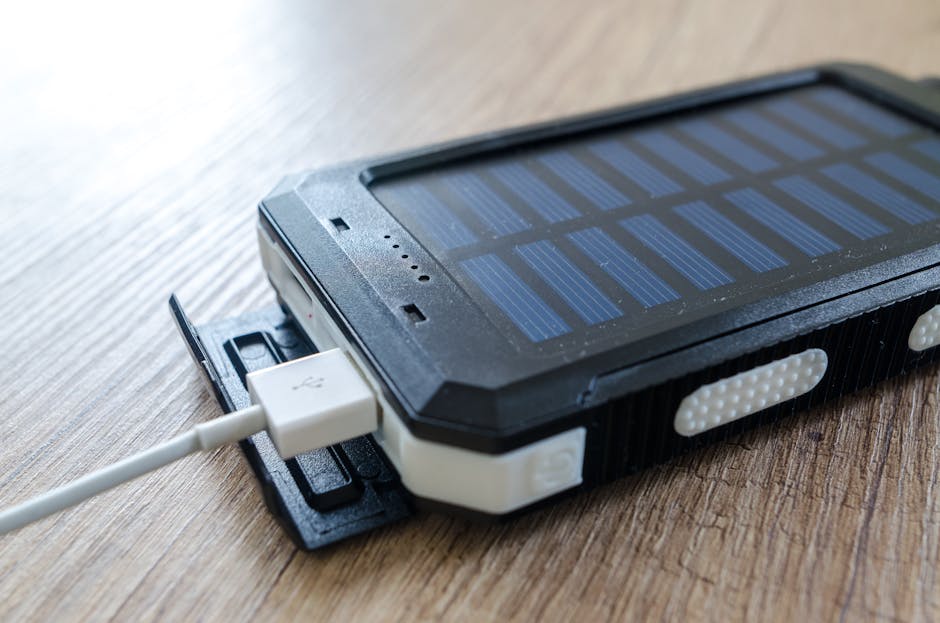Marine Solar Panel Battery Charger
In today’s world, where sustainability and renewable energy are becoming increasingly important, marine solar panel battery chargers are gaining popularity among boaters and outdoor enthusiasts. These innovative devices harness the power of the sun to keep your batteries charged, ensuring that you have a reliable power source while enjoying your time on the water. In this article, we will explore the benefits, types, installation, and maintenance of marine solar panel battery chargers, as well as some tips for choosing the right one for your needs.
Understanding Marine Solar Panel Battery Chargers
Marine solar panel battery chargers are designed specifically for use on boats and other marine applications. They convert sunlight into electricity, which can then be used to charge batteries or power electrical devices. This technology is not only eco-friendly but also offers several advantages over traditional charging methods.
Benefits of Using Marine Solar Panel Battery Chargers
- Renewable Energy Source: Solar energy is abundant and free, making it a sustainable choice for charging batteries.
- Cost-Effective: Once installed, solar panels require minimal maintenance and can significantly reduce fuel costs associated with running generators.
- Environmentally Friendly: By using solar power, you reduce your carbon footprint and contribute to a cleaner environment.
- Reliability: Solar chargers provide a consistent power source, ensuring that your batteries remain charged even during extended trips.
- Low Maintenance: Solar panels have no moving parts, which means they require very little upkeep compared to traditional charging systems.
Types of Marine Solar Panel Battery Chargers
When it comes to marine solar panel battery chargers, there are several types to choose from. Understanding the differences can help you make an informed decision based on your specific needs.
1. Monocrystalline Solar Panels
Monocrystalline panels are made from a single crystal structure, making them highly efficient and space-saving. They perform well in low-light conditions and have a longer lifespan compared to other types.
2. Polycrystalline Solar Panels
Polycrystalline panels are made from multiple crystal structures, which makes them less efficient than monocrystalline panels. However, they are generally more affordable and still provide a good power output.
3. Thin-Film Solar Panels
Thin-film panels are lightweight and flexible, making them easy to install on curved surfaces. While they are less efficient than crystalline panels, they can be a good option for specific applications where weight and flexibility are crucial.
Choosing the Right Marine Solar Panel Battery Charger
Selecting the right marine solar panel battery charger involves considering several factors to ensure it meets your needs effectively.
1. Power Output
Determine the wattage you need based on your battery capacity and the devices you plan to power. A higher wattage panel will charge your batteries faster, especially on cloudy days.
2. Battery Type
Different batteries (lead-acid, lithium-ion, etc.) have varying charging requirements. Ensure that the solar charger you choose is compatible with your battery type.
3. Size and Weight
Consider the available space on your boat for installation. Lightweight and compact panels are ideal for smaller vessels, while larger boats may accommodate bigger panels for increased power output.
4. Durability and Weather Resistance
Marine environments can be harsh, so look for solar panels that are built to withstand saltwater, UV exposure, and extreme weather conditions.
Installation of Marine Solar Panel Battery Chargers
Installing a marine solar panel battery charger can be a straightforward process if you follow the right steps. Here’s a simple guide to help you get started.
1. Gather Your Tools and Materials
- Marine solar panel
- Charge controller
- Battery cables
- Mounting brackets
- Drill and screws
- Wrench and screwdriver
2. Choose the Installation Location
Select a location on your boat that receives maximum sunlight exposure throughout the day. The roof or a flat surface is often ideal.
3. Mount the Solar Panel
Using the mounting brackets, securely attach the solar panel to the chosen location. Ensure it is angled correctly to capture sunlight effectively.
4. Connect the Charge Controller
The charge controller regulates the voltage and current coming from the solar panel to the batteries. Connect the solar panel to the charge controller according to the manufacturer’s instructions.
5. Connect to the Battery
Finally, connect the charge controller to your battery. Make sure to follow the correct polarity (positive to positive, negative to negative) to avoid damaging your system.
Maintenance of Marine Solar Panel Battery Chargers
To ensure your marine solar panel battery charger operates efficiently, regular maintenance is essential. Here are some tips to keep your system in top shape.
1. Clean the Solar Panels
Dust, dirt, and salt can accumulate on the surface of solar panels, reducing their efficiency. Clean them regularly with a soft cloth and mild soap to maintain optimal performance.
2. Check Connections
Inspect all electrical connections periodically to ensure they are secure and free from corrosion. Tighten any loose connections and replace corroded components as needed.
3. Monitor Battery Health
Keep an eye on your battery’s health and performance. Regularly check the water levels in lead-acid batteries and ensure that lithium-ion batteries are functioning correctly.
4. Store Properly
If you plan to leave your boat for an extended period, consider disconnecting the solar charger and storing it in a dry, cool place to prevent damage.
Conclusion
Marine solar panel battery chargers are an excellent investment for anyone who spends time on the water. They provide a reliable, renewable energy source that can keep your batteries charged and your devices powered. By understanding the different types of solar panels, choosing the right charger, and following proper installation and maintenance procedures, you can enjoy the benefits of solar energy while minimizing your environmental impact. So, whether you’re sailing, fishing, or simply enjoying a day on the water, a marine solar panel battery charger can enhance your experience and keep you connected.
FAQs
Can I use a marine solar panel battery charger on my RV?




